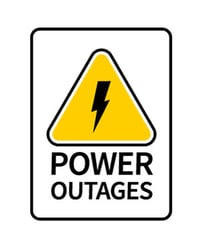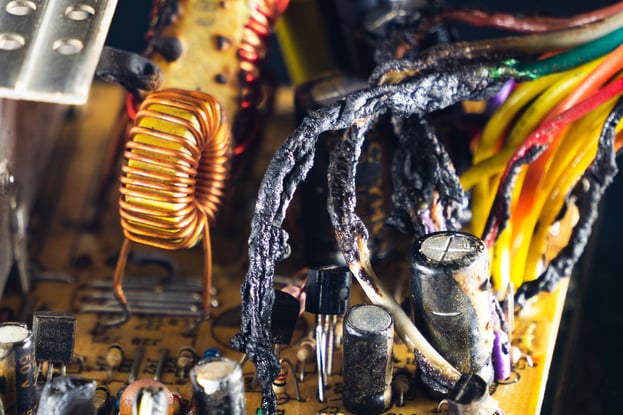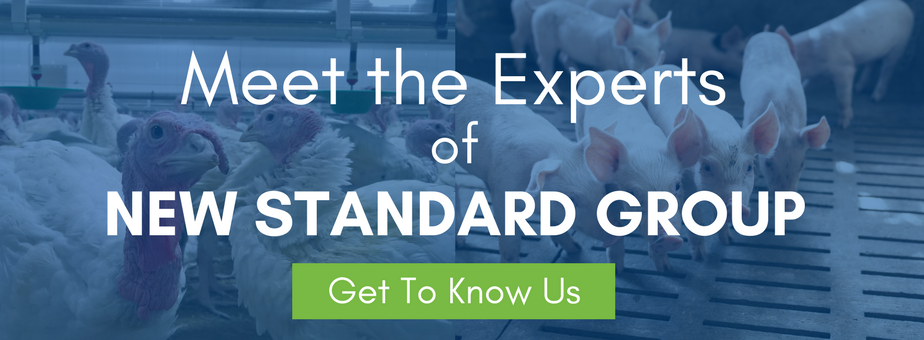
If you've been in animal husbandry for any length of time, you've maybe heard a story from someone who heard it from a friend whose uncle's brother-in-law... you get the idea of the fabled Barn Meltdown? But are these stories urban legend, a thing of the past or something to address? The topic recently came up in the office, and we decided to break it down and add our two cents to the worst-case scenario discussion.
 Kaboom Kaboom!
Kaboom Kaboom!
It goes something like this. It was a dark and stormy night, and the barn was just struck by lightning, taking out all the electronics. A complete meltdown, feed systems are down, ventilation has stalled, lights are out. Animals are in danger and losses are mounting quickly.
We may have painted it a bit dark, but hey, at this point the lights are out so you get the idea. Is this kind of catastrophic failure still possible? Are your barn or animals at risk? Let's break it down, starting with the most significant problems and how you can protect yourself.
Loss of Power

There are numerous ways it can happen, a blown transformer, a power company issue, ice storms, a transfer switch failure or even a careless backhoe. Whatever the cause, losing power to your barn will affect pretty much everything—ventilation to controls to water and feed delivery.
You cannot guarantee it will never happen so the key to minimizing the effects of the loss of power starts with proper preparation. Here are a few key things that can prevent losses or buy the time you need to correct an issue.
- Having on-site backup power (a generator) is a must and is usually required for insurance anyway. This seems logical enough and to be honest, most guys have this checked off the list already. What is most important then is to ensure that all components related to backup power are functioning correctly and are tested regularly.
- Item number two is related to backup power as well. What do you do if your automatic transfer switch fails at the most critical of times? Without a question, there must be an alarm system in place that will notify you immediately if there is a power loss problem because in the case of transfer failure, you’ll need to get someone onsite as soon as possible. Most power companies (or electricians) can provide equipment and training to allow manual transfer of power if needed, so be sure those protocols are in place.
- If possible, incorporating chimney ventilation will also extend the amount of time you can be without power as the natural updraft on a chimney will provide some non-powered air flow and reduce the chances of suffocation.
- As far as feed concerns during a power loss, most grower barns have opted for larger in-barn feed capacity (taller feeders) to allow more time to correct issues. With sows, this can be a bit trickier, so it is important to know (or have support from someone who knows) how to adjust settings temporarily to feed faster when power is restored.
Loss of Electronics

In the case of an electrical surge, such as a lightning strike, there is a good chance you may lose some equipment, and the truth is, electronics don't last forever, lightning strike or not.
The best preventative way to reduce surge damage and increase the durability of electronics is to place a high-quality surge protection device in between your main power and the electronics. We recommend and typically install a commercial grade UPS (Uninterruptible Power Supply) in front of most electronics. The combination of the surge protection built into the UPS as well as the ability to eliminate brown-outs and flickers in the power supply will extend the life of all electronics even if a surge never happens.
If a surge does happen, the extent of the problems will typically be governed by the extent of the surge protection you have installed. With the right equipment protecting critical components, it is very easy to replace or temporarily bypass the installed protection devices and be back up and running.
Another layer of preparedness is to ensure that there are manual operation switches installed for equipment that must run. This will allow anyone in the barn to turn on critical components if necessary.
Warnings & Alarms
As mentioned above, we build barns with automatic and battery backup systems wherever critical system components exist. These are there to keep things running long enough to let you know there is a problem, to protect the important stuff from damage and toextend the life of your electronics in general.
Controllers like the Fusion allow for custom programming and easy-to-design notifications to let you know about anything you like. Text messages for issues that require attention are easy to configure and understand. Learning to trust your controls and what they can tell you can go a long way to preventing major issues from ever occurring.
There is no replacement though for a good alarm system. No matter what you have for controllers, there is always a scenario one can imagine where things do shut down. In that case, an alarm system that has its own built-in protection and battery backup so that calls can be made is essential; it is never advisable to rely solely on a single platform for notification of any problems.
So, Should I Worry About a Meltdown?
In short, no, worry is unwarranted and rather non-productive. The best thing to do is understand what can possibly happen and what can be done for prevention and mitigation when an event occurs. Can things happen? Certainly, but preparation is what determines what happens next. Lightning and catastrophic events are a fact of life, but with some proper planning, putting alarms and alerts in place, and having a few essential backup components, you can rest easy knowing if or when disaster comes knocking, you'll be ready.
If you're wondering if your barn is ready for the worst, we'd be happy to chat about your set up, your needs and help you prepare. Contact your local New Standard location.





